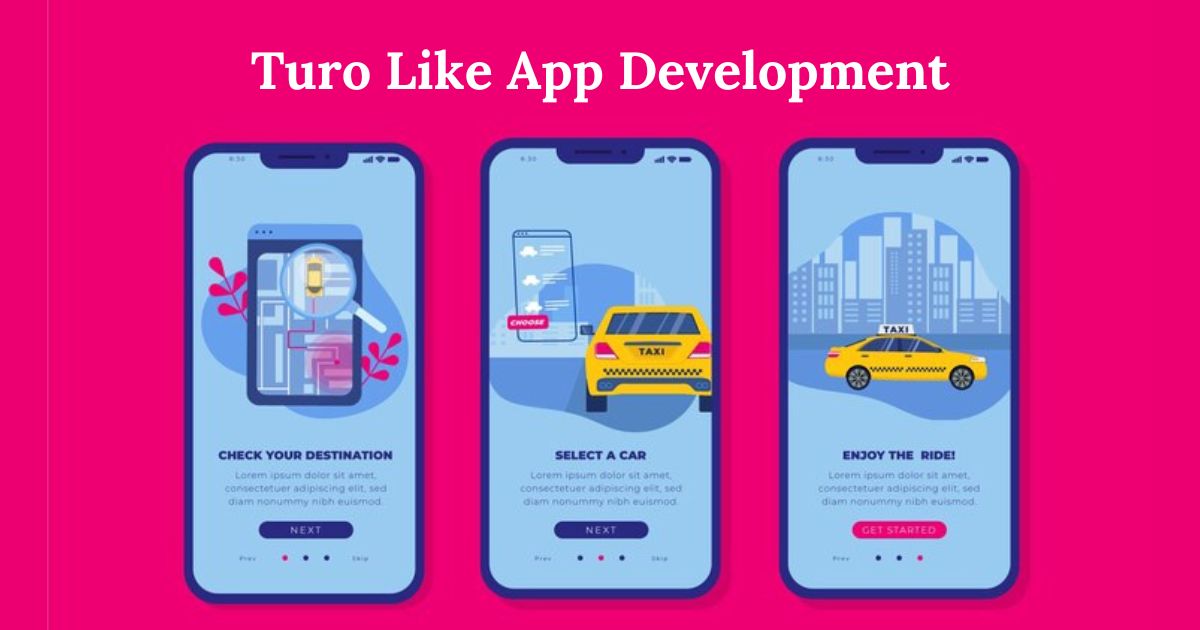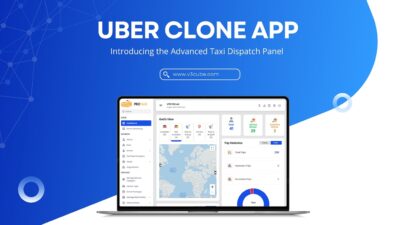
Turo Clone: Implement and Launch Turo Like P2P Car Sharing

In the context of the global increase in the gig economy, P2P services have also surged, and so has the car-sharing sector. Firms operating car-sharing services are among the major industry players steering this shift: one of the most successful of them is called Turo, also known as ‘the Airbnb of cars.’ But what if you are inclined to build a novelties-based P2P car-sharing service for your course? This is where a Turo Clone comes into play.
So in this guide, you’ll learn all about Turo Clone Apps – what they are, how you can get started, and other important info and little tricks on how to start your car-sharing platform. If you are a business person who is looking forward to building a car rental marketplace or anyone wanting to know more about the evolving P2P services, then this article is for you.
What is a Turo Clone?
A Turo Clone is thus an off the shelf or completely built solution that replicates the utility of Turo, a car-sharing marketplace. Indeed, it is car rental management software where you can easily borrow a car from an independent car owner rather than the car renting firms. It means that the clone allows the entrepreneurs to start their business in the specific market without numerous efforts that are required to create the software.
The P2P car-sharing model is expanding fast because of flexibility it introduces to owners of cars and individuals in need of the car. By offering their cars for rent, car owners gain additional income, while renters are provided with a number of vehicles for a reasonable price and often better pickup and drop-off locations than in case with car rental companies.
Why Develop a Turo Clone?
Before diving into development, let’s look at why a Turo Clone could be a smart business move:
- High Demand for Flexible Rentals: There seems to be increase in the number of people hiring compact cars for short and limited use due to costs involved.
- Lower Overhead Costs: P2P car-sharing platforms eliminate the need to maintain a large fleet of cars. Instead, the cars are owned and maintained by individual users.
- Scalability: A well-designed rental marketplace software can easily scale as more users and cars are added to the platform.
- Customizability: You can tailor your platform to specific user needs, regions, or types of vehicles, making it a highly flexible business model.
How to Get Started with a Turo Clone
1. Research the Market and Your Competitors
Like any business venture, it’s crucial to start by understanding the market. The P2P car-sharing space is growing, but it’s also competitive. You’ll want to analyze what companies like Turo, Getaround, and other local competitors are doing. What features are they offering? What pain points are users still facing?
Consider what unique value you can provide. Can your platform offer a better user interface, more flexibility, or specialized services like electric vehicle rentals?
2. Choose the Right Car Rental Management Software
The backbone of your Turo Clone will be the car rental management software that powers your platform. The software needs to offer a seamless experience for both car owners and renters, including features such as:
- Easy car listings: Allow car owners to list their vehicles with photos, descriptions, and availability schedules.
- Secure payment gateways: Ensure that all transactions are secure and user-friendly.
- Insurance integration: Since car-sharing involves private vehicles, integrated insurance coverage options are a must.
- Real-time tracking: Renters should be able to track the location of the vehicle for easy pickup and drop-off.
- Review and rating system: To build trust, allow both renters and car owners to rate their experiences.
Many ride-sharing app development companies offer customizable rental marketplace software solutions. Make sure to pick a provider that fits your needs and has experience in building P2P platforms.
3. Customize Your Turo Clone to Stand Out
However, it is understandable that going with an out-of-the-box Turo Clone solution may be tempting, you should consider customization to stand out. Here are some ways to make your platform unique:
- Specialized services: Target a specific market, for example, the cars that use electricity, pricey cars, or renting green cars.
- Loyalty programs: Provide an option of making additional orders with a special discount to any user: both car renters and owners.
- Geo-targeting: It is recommended to start with a particular city or region and get used to the local market before conquering it.
4. Build a Strong User Base
It is difficult to create a two-sided marketplace because you are trying to attract car owners on one side and renters on the other side. Here are some strategies for growing both sides:
- Incentivize early adopters: Provide incentives for car owners who list their cars during the initial stages of the platform. New customers could also be given some form of a discount in a bid to attract them to book their rentals.
- Referral programs: The word of mouth can however be effective in its own right. The use of bonus points for inevitable friends should be encouraged.
- Targeted advertising: Promote on social networks and in search to find people interested in car-sharing services. With local SEO, you will be able to target users in specific areas.
5. Focus on User Experience
Frankly, The biggest determinant of success or failure of your Turo Clone script is the usability. An ineffective and unattractive platform, a convoluted payment system, or an inconvenient app is going to push users away. Here are some must-haves for a positive user experience:
- Mobile-friendly design: A large number of your users will probably use their mobile devices to access your app or website, so make sure both are mobile friendly.
- Simple onboarding: This means that both the car owners and renters should have the easiest time signing up.
- 24/7 customer support: Car-sharing is a time-sensitive service. Ensure you have strong customer support to handle any issues that arise.
6. Integrate Secure Payment and Insurance Options
One of the biggest challenges for any Turo Clone or rental marketplace software is ensuring safe and secure transactions. People need to trust that their money and vehicles are safe on your platform.
Make sure you integrate secure payment gateways that support multiple payment methods, such as credit cards, PayPal, and even cryptocurrency if that fits your audience.
Equally important is offering insurance options that protect both car owners and renters in case of accidents or damage. Many car-sharing platforms partner with insurance companies to offer coverage directly through the app, which can increase trust and transparency.
7. Stay Legally Compliant
Legal concerns are a very important factor that one needs to consider when managing a Turo Clone. In this case, the rules governing car rentals and car-sharing services vary from one country, state or city to another. Some states have a condition that one needs to have some license or permit in order to operate the P2P platform, while in other states; there is a condition that restricts the number of rentals one can provide through the P2P platform.
It is always best to have your lawyer who is well-informed of the car renting laws to help in developing the platform to meet such legal requirement. This will help you avoid hefty penalties or even plant closures in the future as has been seen in this paper.
Challenges You Might Face When Launching a Turo Clone
While the P2P car-sharing industry is lucrative, it’s not without challenges. Here are some obstacles you should be aware of:
1. Supply and Demand Imbalance
Building a marketplace means you need to balance supply (car owners) and demand (renters). Without enough cars, renters won’t stick around. On the flip side, if you have too many cars and not enough renters, car owners will be discouraged from listing their vehicles.
2. Insurance and Liability Issues
The risk of accidents or damage is always present in car rentals. Ensuring proper insurance coverage for all parties involved can be a headache. It’s crucial to have airtight insurance policies that cover all possible situations.
3. Competitive Landscape
Many big players like Turo and Getaround have a solid foothold in the car-sharing industry. Entering a competitive market requires offering something new or better, such as a more user-friendly interface or specialized services.
4. Managing Maintenance and Quality Control
Since you’re relying on individual car owners, maintaining a standard quality for the vehicles listed on your platform can be challenging. You’ll need a system in place for regular checks and user feedback.
Wrapping Up!
Launching a Turo Clone and entering the P2P car-sharing market does not have to be a race to the bottom: it can be financially rewarding if done right. The key rules any company has to follow are driven by concentrating on user experience and providing secure transactions while maintaining trust from customers allowing to find a niche in this expanding market.
Always select a competent car rental management software, ensure your platform is tailored to cater for certain user requirements and obey the law. However, if the strategies are applied correctly, then the P2P car-sharing platform you offer can find a place in this expanding digital market opportunity.





Leave A Comment